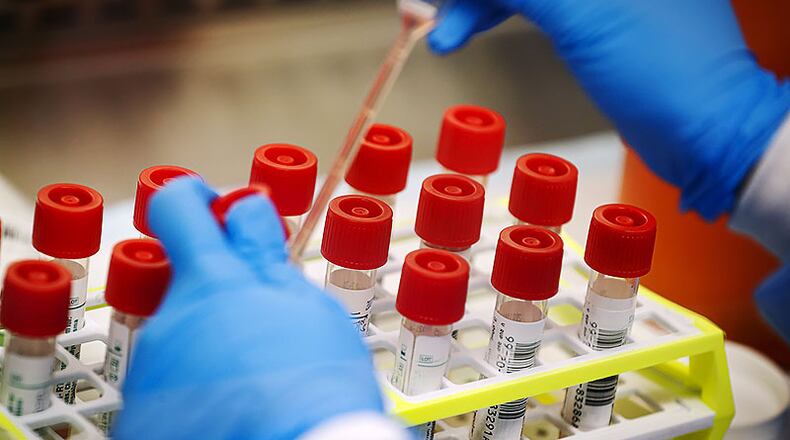“CompuNet has been working tirelessly over the past few weeks to bring testing to patients within our hospitals who are suspected of being positive for COVID-19,” Dr. Ronald Chiu, CompuNet medical director, said in a statement. “This is a game changer for us. By testing at CompuNet’s core lab, COVID-19 test results will be delivered sooner to providers within the hospital setting, allowing for better and efficient triage of patients, early medical intervention, as well as better allocation of resources, including personal protective equipment.”
>> As people wait days for results, DeWine orders testing changes
The businesses said testing initially will be limited based on the Ohio Department of Health’s order issued on Wednesday, which prioritizes patients who receive the COVID-19 testing. Hospitalized patients and symptomatic health care workers will be the first group to receive this test.
Local test access is expected to shorten turnaround times for test results to 24 to 48 hours for hospitalized patients.
CompuNet will have two separate tests. Clinicians can order either a respiratory panel that tests for multiple viruses and COVID-19, or the standalone COVID-19 test. The respiratory panel looks at whether the patient has a different respiratory virus.
>> Coronavirus: Complete Coverage
The lack of local testing has been slowing down results for tests as hospitals send their samples to backlogged major labs like Quest and LabCorp.
Hospitals have been working on setting up their own testing but this is a challenge as everything from testing swabs to needed chemicals remain difficult to procure.
In Ohio, Ohio State University Wexner Medical Center, Cleveland Clinic and MetroHealth all have capacity to do testing and more hospitals have been adding the capability.
On Monday and Tuesday, Gov. Mike DeWine urged hospitals to send more tests to neighboring hospitals with capacity or to Ohio Department of Health’s laboratory, which is turning around test results faster than private labs.
On Wednesday Dr. Amy Acton, who leads Ohio Department of Health, said she was turning that plea into an order that all hospitals without their own testing will need to send tests to other hospitals with capacity to test.
>> Coronavirus: ‘Help is on the way’ governor assures hospitals
Ohio Department of Health has a public laboratory that can turn around results in about eight hours, but the lab has priority criteria for which tests it will take. The top priority at the state’s lab is for hospitalized patients and health care workers with symptoms. The second priority group is for patients with symptoms who are either in long-term care facilities, 65 years or older, have underlying conditions or first responders.
DeWine has said that rapid tests are coming onto the market will be deployed across Ohio as soon as they are available, perhaps next week.
Premier Health, Fidelity Health Care and CompuNet are also operating the drive-up collection services at UD Arena, which generally focuses on outpatients in the community who are people who are exhibiting symptoms consistent with COVID-19 but who are not part of a high-risk population.
